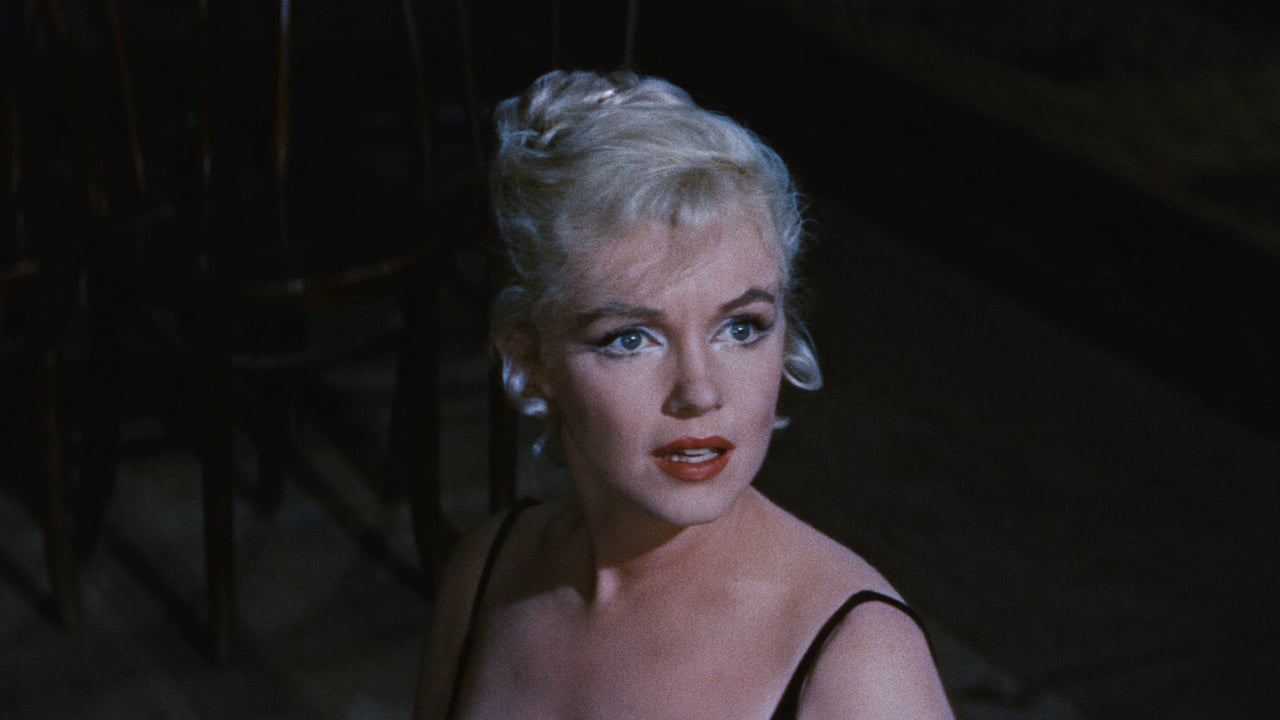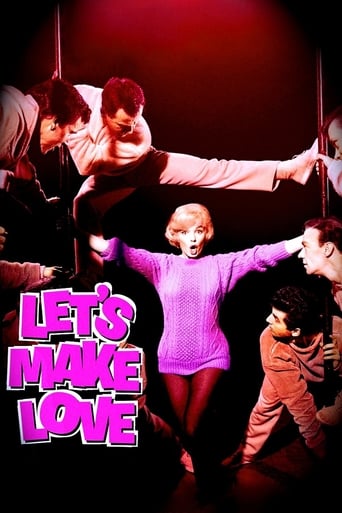

Better Late Then Never
... View MoreAn absolute waste of money
... View MoreGreat movie! If you want to be entertained and have a few good laughs, see this movie. The music is also very good,
... View MoreStrong acting helps the film overcome an uncertain premise and create characters that hold our attention absolutely.
... View MoreMonroe at her worst is the best thing in this pathetic movie. She handles her musical numbers very well, but the songs, aside from 'Heart belongs to Daddy' have lyrics that are laughable, not funny, but sophmoric. The movie tries so hard to be good-- even bringing in cameos by Crosby and Kelly badly written, and one by Uncle Milty at his obnoxious worst. The picture was so dull that Monroe shines.
... View More*Spoiler/plot- Let's Make Love, 1960. A French handsome eligible billionaire is tired of women chasing him for his money. He finds a small New York stage play that is making a satire involving him. He shows up to stop the public embarrassment of the shows opening. He falls in love with the lead struggling actress. He tries to win the love of a stage actress by pretending to be another starving New Your actor in the same stage play.*Special Stars- Marilyn Monroe, Yves Montand, Tony Randal, Frankie Vaughan, Wilfrid Hyde-White.*Theme- People from different backgrounds can find common matters to make a relationship.*Trivia/location/goofs- Musical. Script written by Monroe's new husband, Arthur Miller. Lead male role re-cast over six times but finally accepted by M. Monroe's final approval.*Emotion- An entertaining musical film combined with Marilyn Monroe and several great catchy song numbers. A time capsule of the late 50's and so a bit of history for the viewer.*Based On- "Mr. Monroe's" Arthur Miller script.
... View MoreMarilyn Monroe was at the top of the Hollywood star ladder as the Star of Stars when assigned this movie by her home studio 20th. Marilyn Monroe had just had the smash hit of her career with Some Like It Hot (A United Artists film) and 20th wanted to cash in on the MM popularity. Marilyn Monroe had been announced for another UA film John Huston's masterpiece The Misfits co starring Clark Gable and 20th insisted on a Monroe film before MM was allowed to do another film outside 20th. (between 1956 to 1960 while having the greatest star in Hollywood under contract 20th Century Fox did not cast MM in a movie however the very shrewd MM had a play or pay contract and when the studio announced her for Wild River and The Blue Angel but those deals did not materialize MM demanded and got her salary for those films!) Much has been written about this film and when it was released I was disappointed, having seen it recently on the Fox Movie Channel, I now find Lets Make Love charming and Ms Monroe enchanting. George Cukor among the "Approved Directors" on MM's short list ( others were Wilder, Huston, Hitchcock, Wyler, et al) was said to be a director aware of the nuances of a female star's personas ( Hepburn, Garbo, Crawford, Leigh, Holiday, Loren all raved over Cukor.Marilyn Monroe looks stupendous in this movie,and is given fine support by a cast of professional's such as Wilfrid Hyde White, Tony Randall and cameos by Milton Berle and Bing Crosby. Yves Montand, who had a legendary fling during the filming of the movie with MM, is fine as The Billionaire.
... View MoreMarilyn Monroe' considerable on screen charisma is lost in Let's Make Love, a supposed romantic comedy that looks exactly like what it is: a contractual obligation. Monroe plays an actress named Amanda who is playing a role in a horrific off-Broadway show satirizing French billionaire Jean-Marc Clement played by an oddly subdued Yves Montand. Montand's character is alerted to the upcoming spoof and decides to pay a visit to the theater's. One look and he is smitten with Monroe, this despite the fact that everything conceivably possible has been done to ameliorate Monroe's beauty and luminosity. She's overweight, she's pasty, her hair's bleached to straw and she's filmed using the worst lighting imaginable.After reading the mostly kind reviews here on IMDb, and being a considerable Monroe fan I decided to give this film another go despite being unable to watch it at least five times prior (hey! I said I was a fan!). Even her relatively strong singing (truly, she was well-trained - see Ladies of the Chorus) falls flat here. The film is a boring, tedious mess that can't be saved by either Monroe or the cameos of Milton Berle, Bing Crosby or Gene Kelly. All I could feel while watching this movie was a deep sense of sympathy for Monroe, who is abused by both Cukor and Miller (who apparently wrote some of her lines).
... View More